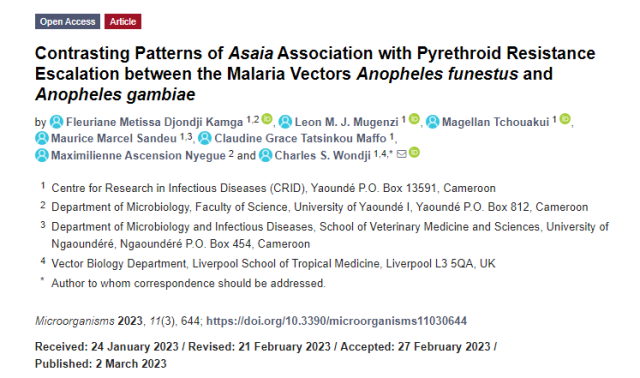Malaria remains a devastating disease in the World (nearly 1/2 of world population at risk) and particularly in Africa where more than 95% of cases are occurring. With no vaccine and problems with drug resistance, there is increasing reliance on vector control through the use of insecticide-based interventions including impregnated nets which have significantly reduced malaria’s burden in Africa since their introduction in 2000 to 2015. Unfortunately, the spread of insecticide resistance across sub-Saharan Africa threatens the long-term effectiveness of these strategies. It was reported that mosquito’s microbiome is one contributor to such resistance in malaria vectors but it still unclear how this occurs. In this study, the authors observed that the mosquito bacteria called “ASAIA” is significantly associated with resistance to insecticide in the malaria vector Anopheles funestus but not in Anopheles gambiae. More studies are needed to clearly establish how this mosquito bacteria contributes to resistance and attention should be paid on this microorganism to sustain the efficacy of vector control tools and achieve successful malaria control







